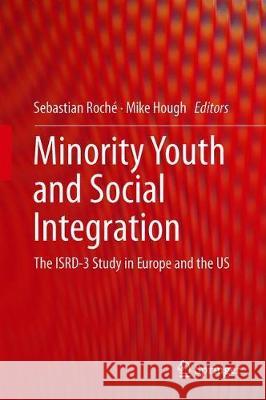Minority Youth and Social Integration: The Isrd-3 Study in Europe and the Us » książka
topmenu
Minority Youth and Social Integration: The Isrd-3 Study in Europe and the Us
ISBN-13: 9783319894614 / Angielski / Twarda / 2018 / 248 str.
Kategorie:
Kategorie BISAC:
Wydawca:
Springer
Język:
Angielski
ISBN-13:
9783319894614
Rok wydania:
2018
Wydanie:
2018
Ilość stron:
248
Waga:
0.54 kg
Wymiary:
23.39 x 15.6 x 1.6
Oprawa:
Twarda
Wolumenów:
01
Dodatkowe informacje:
Wydanie ilustrowane











